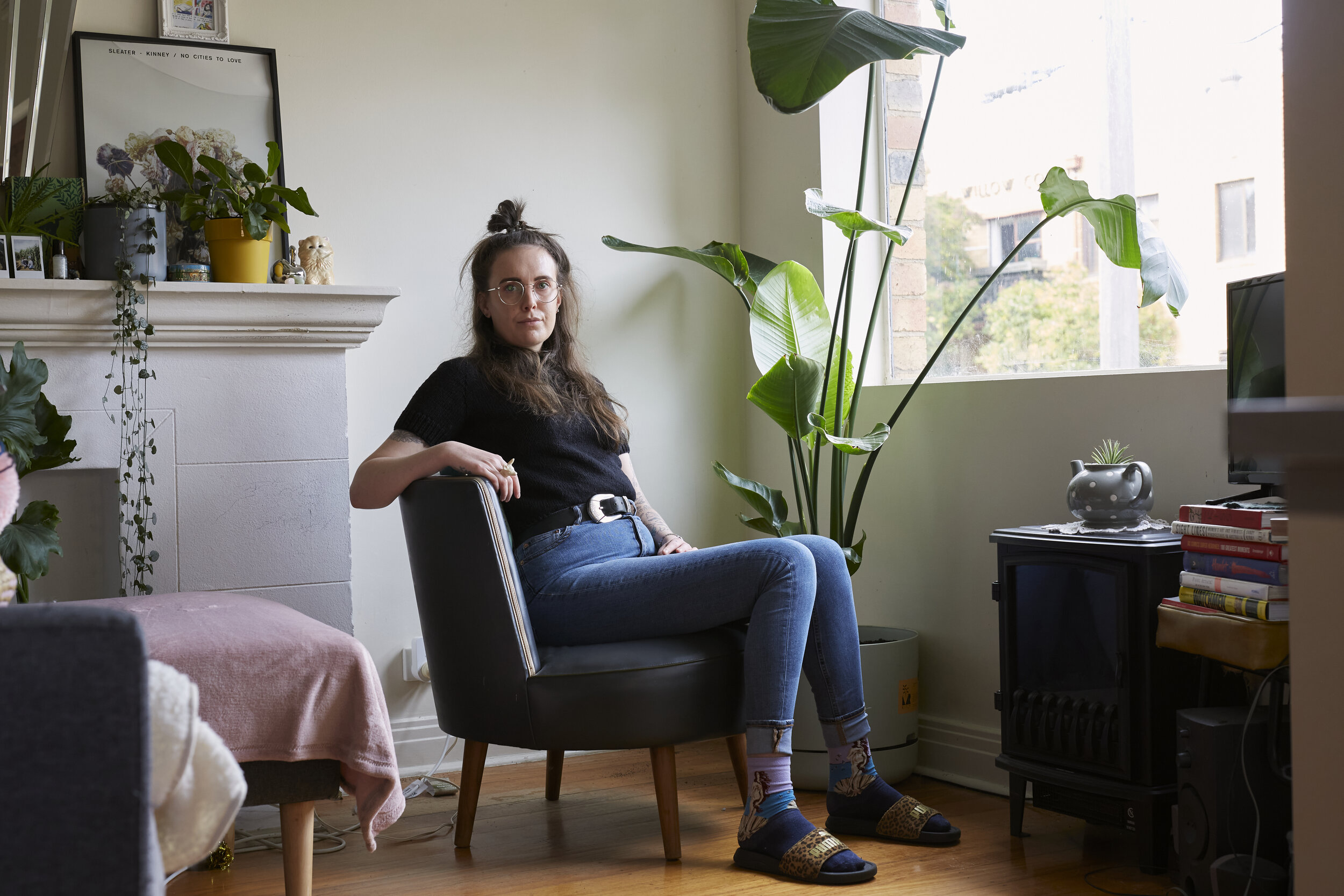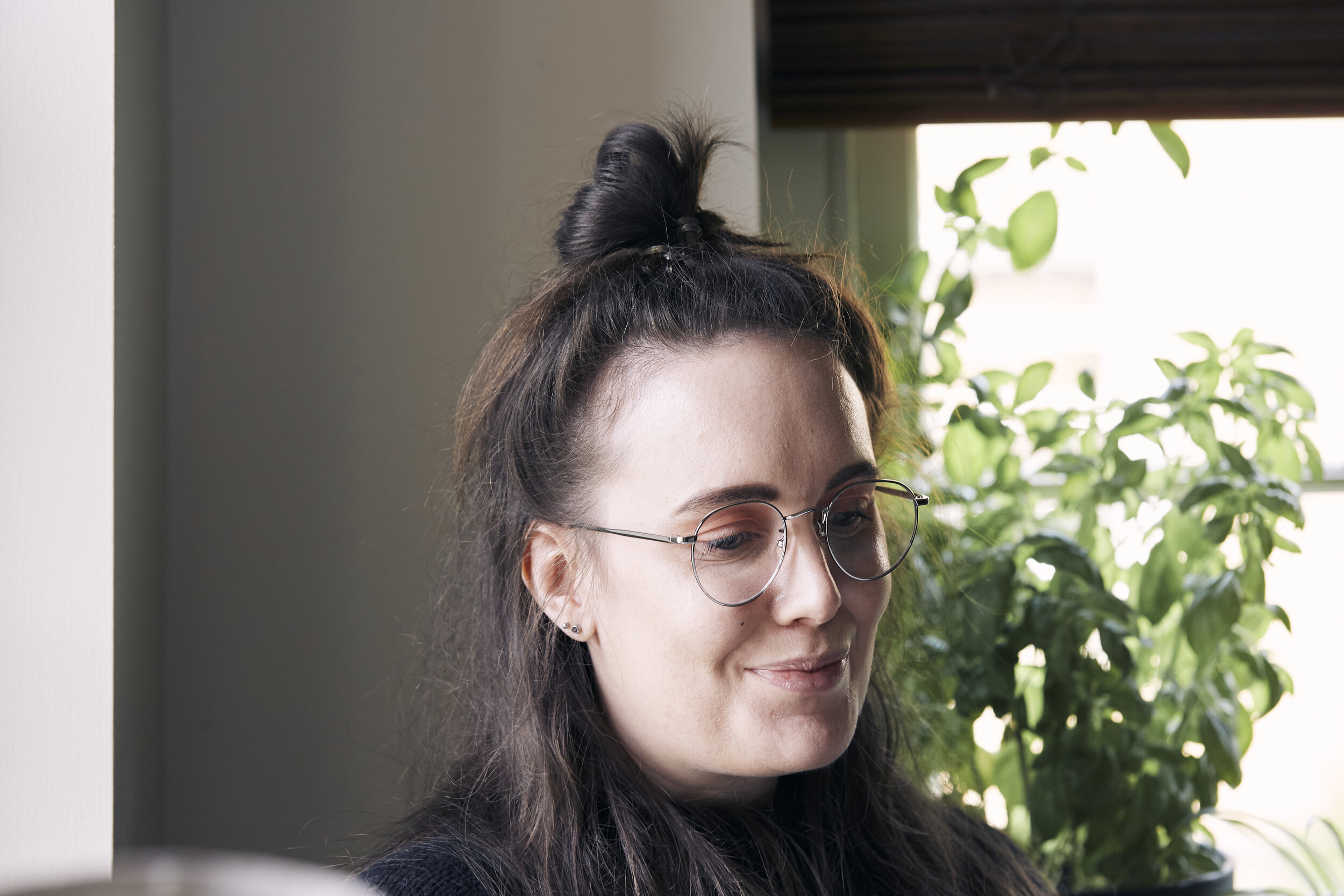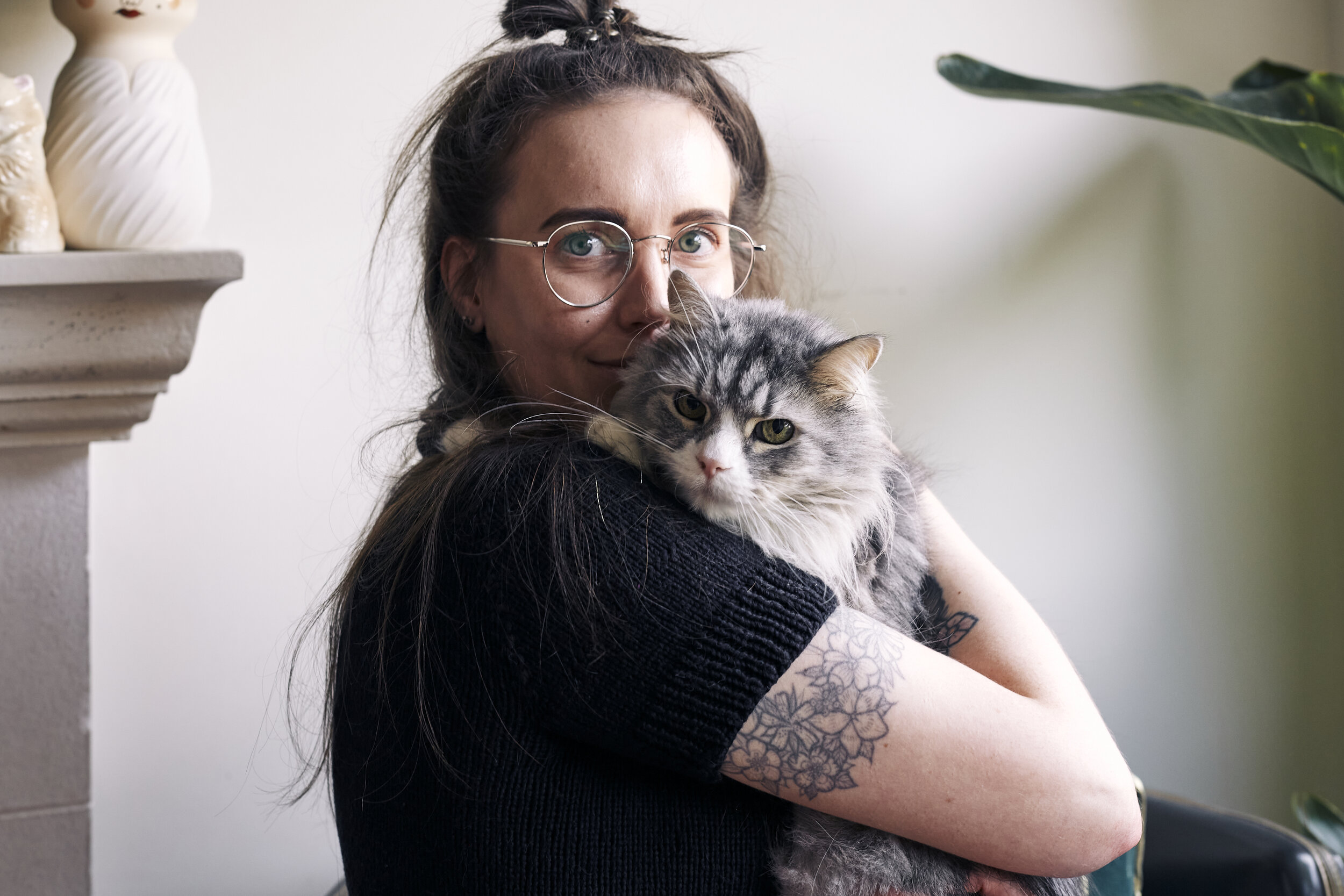Alice Bellette a proud descendant of the Palawa people - the first peoples of Tasmania
Can you tell us a little bit about yourself, and what you do?
My name’s Alice Bellette, and I'm a proud descendant of the Palawa people - the first peoples of Tasmania. My PhD is taking up most of my time and energy at the moment, but I’m also a zine maker, a music maker, a poet and most recently a knitter. I got into knitting last year during lockdown, and it’s become a big part of my creative life. I knitted a scarf first, and then I made hats for nearly everyone I know. I’m currently knitting hats to sell and donate funds to the Dhadjowa Foundation. I really like the meditation of making the hats - the repetition and the gentleness and delicateness, I find really soothing.
Outside of knitting, I’m also a zine maker – I’ve been making zines since I was a child, although I wasn’t really aware of what they were, I just liked making little books. When I moved to Melbourne, I found out about Sticky Institute – and realized that we’re in the golden era of zines. Zines are a different kind of creative method, and can be really diverse in content and form, which I love.
I have made quite a few poetry zines in the past, amongst others, but most recently I’ve been doing interviews with my friends who make music, and turning them into zines to accompany their music releases. At first, I really wanted to interview them so I could ask them how they made their music, so it was initially a self-involved endeavor. But they have become now just an extension who I am - a huge fan of people and things, and putting the spotlight on my cool and talented friends.
What drew you to doing a PhD?
This is a bit of a long story. I had a really weird experience coming up to finishing my honours degree, where I was coming into thinking about being white passing, light-skinned Aboriginal person. I never thought that I belonged in those (Aboriginal) spaces, because I was raised in very western settler ways, I was aware I didn’t want to recolonize these spaces with my ignorance, or take up space in them. For my honours thesis, I had written on Aboriginal women authors, focusing on three novels as case studies, and a senior academic at the time said to me, "What about your subjective position as a white woman?" That was her only criticism of my work.
For some reason I deeply internalized that response and I took that to mean I'm not really Aboriginal because I don't look Aboriginal. And my reaction to that was feeling, "I'm done with this shit. I'm so sick of the academy, its structures and its violence and its coldness." And I really thought I was done, until my honours supervisor contacted me to meet for lunch, suggesting to me that I should consider at least applying for the opportunity of a role on a wider research team (as their PhD student contributor). My knee-jerk response was that I wasn’t ready for that, but then I realized that it met some criteria for actually wanting to do post-graduate studies, and so considered it thoughtfully, as I felt there was a supportive structure to be embedded in a broader team like this.
When people ask where you're from, it can actually be a complicated answer.
And that’s by design. I'm starting to build a community for myself but only through my own bravery to claim my sense of identity. We're not playing a diversity card here, we exist, we're here because we survived. Claiming that history is huge, not just for me but for many others, because it is really difficult when you maybe can't identify yourself. I am lucky that I can identify myself and am recognized by community. But a lot of people are lost because they don't know where they fit in. The stolen generations, and “breeding out the blacks” – people have been disconnected from community, and from Country.
When I launched the podcast I was involved in recently, I sent an email to a friend saying that it was coming out, and I said I was nervous about putting myself in the spotlight, as an Aboriginal person. And she said something that felt like a light bulb moment for me. She said, "Don't worry. People are going to talk shit everywhere, but as long as you know you're doing it for Country." And that was when I realized that it was never about me, it's always been about reaffirming existing where its inconvenient to exist and ultimately about caring for Country.
Tell me about the podcast you’re a part of, ‘Welcome?’
The podcast, ‘Welcome?’, is one of the public facing parts of the research project that my PhD is located in. We are a team of four women and we worked for about 18 months on it, from development to launching. It was quite hard for me because I'd started developing my episode in the series before I had obtained my PhD confirmation, so I felt a bit lost, having not yet found my footing in my research. But I'm pretty proud of what came about. Overall, the podcast gives a voice to people who aren't dominant in the narrative of their country, but it's their place, their ancestral homelands. We have episodes that look at the Nubian people in Kenya, Papua New Guinean people located along the Kokoda Trail, and native title in the Kimberley. But more broadly, it looks at how colonization isn’t always a black and white relationship.
How does your work sit alongside contemporary feminism – does it speak to or push back against any areas in particular?
When I was younger I was definitely into the cute sloganisms that capitalist feminism wanted to sell to me. But now, I recognize that feminism isn’t just a signalling, purely vocal movement, it's actually an embodied movement. I refuse to buy into the marketing of feminism, and am continuing to have clearer eyes with which to discern what is good for a movement or not.
What do you think some of the challenges are for women and non-binary people in Victoria?
Fundamental recognition - not just being perceived, but to be recognized. Society has moved past the need for girl power, and we need to think about meaningful engagement with labour. Recognition of labour, and all its facets. How and where women and non-binary people perform labour within work, within play, and within relationships. It's a network of labour.
I've been really doing a lot of listening to Aboriginal women and the invisibility of their labour. Tess Ryan was speaking at a conference I attended recently, and she presented what she named ‘Coolamon protocol’. She used the coolamon as a metaphor for the labour of Aboriginal women because the coolamon is a traditional carryall. There are obligations to community, but these can go unseen. It’s not about financial remuneration for labour, because I think actually that’s reductive, and can strip agency. A lot of work has to get done, and we want it to get done, but there isn’t, I think, a recognition of that labour beyond what is immediately visible.
Interview Jessamy Gleeson




